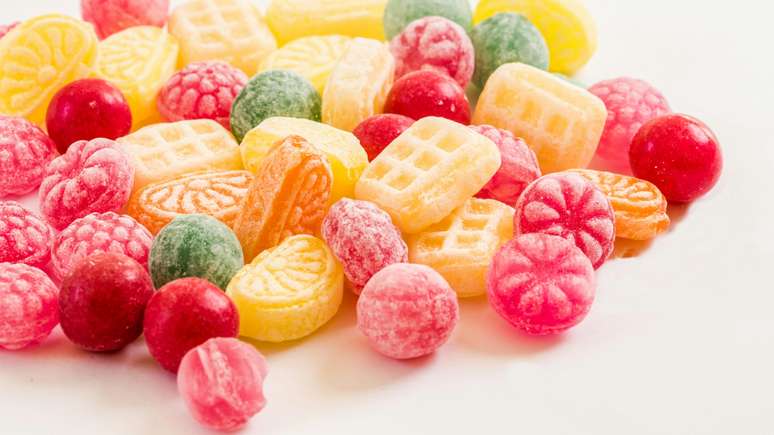In this week’s article, homeopathic pharmacist Jamar Tejada brings together several studies on the effects of sugar addiction on the human body
Are you one of those people who can’t do without a sweet? As soon as you see that brigadeiro, pudding or carrot cake with chocolate icing, you start drooling and are practically blind to everything around you? Does your attention become unique and exclusive for this dish that is in your eyes? If so, would you consider yourself an addict?
While the World Health Organization (WHO) recommends that sugar intake should not exceed 10% of daily calories, Brazilians reach levels close to 16%. This high consumption comes not only from added sugar, but also from ultra-processed foods, such as filled biscuits, protein bars, chocolates, processed cakes, yogurt, sports drinks, vitamin waters, among others.
A survey conducted by the Ministry of Health shows that Brazilians consume on average about 80 grams of sugar per day, or about 20 teaspoons. This high sugar consumption has been associated, primarily, with increased rates of obesity, diabetes and other chronic diseases in the country, such as hypertension, metabolic diseases and even cancer. It’s something to worry about, right?
Is sugar addiction the same as addiction to other drugs?
You may have heard that sugar is as addictive as cocaine. This theory emerged in 2016 in a study conducted by the University of Queensland, Australia, which demonstrated in rats that the same brain region activated with cocaine is activated with sugar, via a reward system.
But this same region is activated with everything that generates pleasure, such as a hug, a kiss, sex, etc. So, when we eat a sweet, the reward system, called the mesolimbic dopaminergic system, is activated. Dopamine is a chemical released by neurons that signals that an event was positive. When the reward system activates, it reinforces behaviors, making it likely that we will perform those actions again.
Another study conducted in Princeton in 2008 found that rats can become addicted to sugar, and that this addiction can be linked to various aspects of addiction, such as appetite, binge eating, and withdrawal. This answer explains the reasons why many people have difficulty abandoning the consumption of processed and sweet products.
It is clear that the effects caused by drugs are very different from the effects caused by the consumption of sweets, but there is still confusion on this topic because there are scientific studies which, instead of evaluating problems related to addiction, end up focusing on behavioral aspects. of eating disorders – and there is a big difference there.
You don’t need to lock yourself in a room or go to a recovery clinic to get rid of your sweet tooth. But I’m not saying it’s easy either, okay?
From the chocolate bar to the fruit
This preference for a sweeter taste and refusal to accept new foods is a mechanism that comes from our ancestors, an evolutionary system called food neophobia. The taste of the food served as a warning to us: if the food had gone bad it would have tasted bitter and if it had a sweet taste it would have been a positive sign. And, in fact, we still use this mechanism today. Who doesn’t put the tip of their tongue on a food to test it?
It is interesting to know that this contact with sweets is instigated since our birth, have you noticed that our first contact with food is breast milk? And the carbohydrates in milk taste sweeter, which is why this preference for sweets begins. I’m not saying breast milk is wrong, far from it! The wrong thing to do in childhood is to compensate for a good deed with a treat. Why not make up for your little one with some fruit?
Carbohydrate is a macronutrient basically made up of carbon, hydrogen and oxygen molecules. This macronutrient, when ingested and absorbed, is responsible for releasing glucose, providing energy to cells (as it is the primary source of cellular energy), and maintaining blood sugar metabolism so that the body continues to function well.
Sugar is a more common name given to certain types of carbohydrates, such as sucrose, glucose and fructose, and can be consumed in various forms, from a chocolate bar to a piece of fruit. Being a carbohydrate, although it does not contain nutrients, it ends up being a source of energy for the body.
Sugar damage
Many believe that diabetes is the only or biggest sugar problem, but as you may have already noticed, it’s just another problem. A high blood glucose level also damages the blood vessels in the body and this leads to numerous problems.
I also want to mention the effects of sugar on the brain. Several studies of long-term diabetics show progressive brain damage, leading to deficits in learning, memory, motor speed and other cognitive functions. Frequent exposure to high glucose levels decreases mental capacity, also leading to possible shrinkage of the brain.
Even for people without diabetes, higher sugar consumption is associated with lower scores on tests of cognitive function. These effects are believed to be driven by a combination of hyperglycemia, hypertension, insulin resistance, and high cholesterol.
The hippocampus, our memory “center”, is also directly affected by sugar. Research published in Learning & Memory shows that rats eating a high-sugar diet reduce their chances of remembering whether they saw objects in specific locations, for example. According to research, sugar-induced changes in the hippocampus are linked to the reduction in the formation of new neurons, which are extremely important for encoding memories. Access the research study by clicking here.
Another important point is inflammation, as research also suggests that high sugar consumption can cause inflammation in the brain, resulting in memory difficulties. A study published in Bhavioral Brain Research in 2016 found that inflammatory markers were present in the hippocampus of rats fed a high-sugar diet, but not in those fed a standard diet. View the full study by clicking here.
Relationship between sugar consumption and mood
It doesn’t stop there. Sugar is also closely related to our mood.
A study that analyzed the food consumption and mood of 23,245 individuals enrolled in the Whitehall II study found that higher rates of sugar consumption were associated with a greater incidence of depression. In 2017, research was published in the journal Scientific Reports and reported that individuals with high levels of sugar consumption were 23% more likely to be diagnosed with a mental disorder than those with the lowest consumption. See the full study here.
As you may have noticed, the losses are not small and the price to pay is too high. I hope that after reading this, you will start to rethink your habits and ask yourself: “Why so much sweet?”, or “Does sweet in my life serve as consolation?
They can also improve our mood, but temporarily. The loss is much greater than the reward. In most cases, reviewing your feelings is the best strategy.
Eliminating carbohydrates from your diet is also no easy task, but you can reduce your intake by avoiding processed foods, especially white flour. Drinking more water is also essential, as our brains confuse dehydration with hunger. Furthermore, eating more protein ensures satiety for longer and helps resist the urge to eat sweets.
Finally, change old habits such as dessert, give it up for three weeks to readjust your taste buds and reduce your appetite and resist the urge to eat due to any problem that arises, whether because you are nervous, sad or simply out of habit .
Remember: food is a source of life, treat yourself with respect, know how to select what is positive for you and what is bad, know how to send it away. Good luck!
Source: Terra
Ben Stock is a lifestyle journalist and author at Gossipify. He writes about topics such as health, wellness, travel, food and home decor. He provides practical advice and inspiration to improve well-being, keeps readers up to date with latest lifestyle news and trends, known for his engaging writing style, in-depth analysis and unique perspectives.









